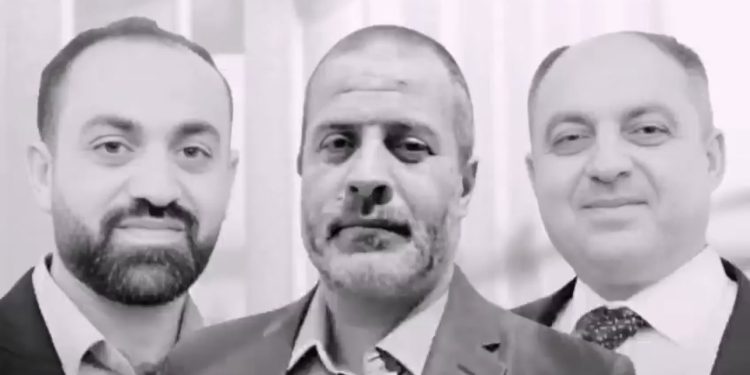The State Security Court in Amman held the thirteenth session of the trial of detainees Ibrahim Jabr, Hudhaifa Jabr, and Khaled Al-Majdalawi, who are accused of trying to transport weapons to the Palestinian resistance in the northern West Bank. The trial comes amid growing human rights concerns about Jordan’s deteriorating legal guarantees and fair trials.
Attorney Abdul Qader Al-Khatib’s defence team claims that only one witness needs to be discussed after the prosecution’s witness was covered during the session.
The team confirmed that, for the second time, it had formally requested the return of detainee Ibrahim Jabr’s family property, which includes a car, electronic devices, and a sum of money that has not yet been delivered to his family despite the fact that his arrest was more than two years ago.
According to the case’s facts, the brothers Ibrahim and Hudhaifa Jabr were detained by Jordanian authorities on May 13, 2023, on suspicion of trying to transfer weapons from the city of Mafraq to the town of Hawara in order to aid the Palestinian resistance in the northern West Bank. Khaled Al-Majdalawi later denied having any organisational ties to the Islamic Resistance Movement “Hamas” and was arrested on June 2, 2023, suggesting that his only responsibility was to gather money for aid in Gaza.
In violation of the presumption of innocence, the defence team claimed that the three detainees had not received court decisions despite the fact that it had been more than a year and a half since their arrest.
The detainees’ defence team further confirmed that the confessions the prosecution relied on were obtained through torture and coercion, as the detainees were subjected to moral and physical abuse, including being forced to sign blank documents, in egregious violation of both national and international laws.
Legal violations
The defence team pointed out a number of grave legal infractions that the detainees had to endure, such as: denying their relatives extended visits, failing to provide them with proper medical care in spite of their urgent need, and coercing them into signing blank documents in order to extract confessions.
Jordan has ratified the Convention against Torture, which expressly forbids torture and inhuman treatment, and the Commission emphasised that these practices are a violation of Jordan’s international human rights obligations.
As it emphasised that “criminalising support for the Palestinian resistance with weapons and money contradicts Jordan’s regional and international obligations towards the right of peoples to self-determination and resistance to occupation,” the Defence Committee reiterated its call for the detainees’ immediate release and the dismissal of the charges against them.
The Commission further stated that, given the crimes against civilians in the West Bank and Gaza Strip, support for the resistance should not be criminalised since it is associated with Islamic, nationalist, and national values in the face of aggression against the Palestinian people.
The principles of a fair trial, such as the prohibition of using confessions obtained under duress, must be emphasised in this case. Additionally, Jordanian authorities must adhere to their international legal obligations, particularly those pertaining to the protection of human rights defenders and the right of peoples to resist occupation.
Furthermore, the ongoing detention of these people in the absence of a court decision constitutes an egregious transgression of the values of justice and human dignity, necessitating immediate action to grant them justice and free them.






























